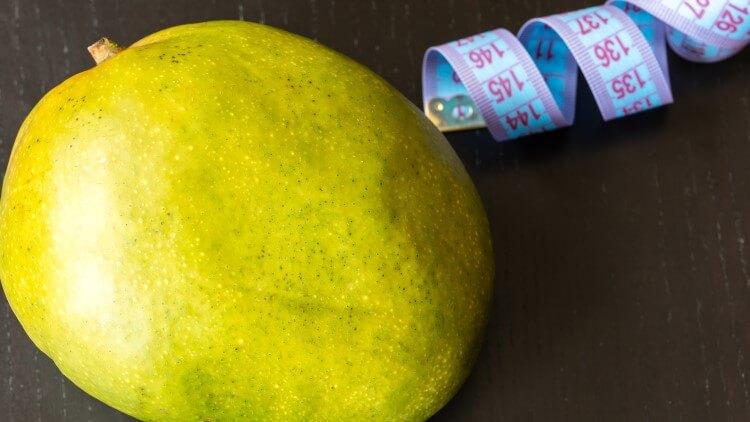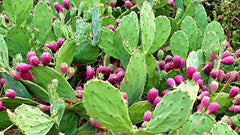
African Mango Review - Weight Loss Benefits of Irvingia Gabonensis Extract
African Mango is often marketed as a weight loss aid. You might have heard about it while researching different options online and be wondering if it actually works. If you want to lose weight, then it can be tricky to know which supplements are effective and which are a waste of money.
It’s a natural substance that’s extracted from the African Mango plant and thought by some to have beneficial health properties. Companies that manufacture the supplement claim that it promotes weight loss but little research has been done on the subject. So, we decided to look at the evidence ourselves to see if it’s something to be excited about. In this article, we look at the possible benefits, scientific research, and potential side effects too.
What Is African Mango Extract?
African mango is a fruit that grows in Central and Western Africa. It’s produced by the African mango tree, which is also known by its Latin name – Irvingia Gabonensis. The fruit itself is sometimes referred to as the bush mango, wild mango, or dika nut, and is very similar to the mango we eat in the west.
The fruit is normally consumed for its flesh but the central seed is also sold in extract form. Some people believe that it has powerful health and weight loss properties which is why it is often marketed as a supplement. African mango extract is usually sold in liquid, capsule, or powder form. However, the evidence to support its use isn’t particularly strong so it’s important to do your research before spending money on related products.
Health Benefits of African Mango

African mango offers many health benefits. Like most fruits, it’s rich in important vitamins and dietary fiber which aids digestion and helps you feel full. The seed of this type of mango (which is the source of the extract) contains:
- B vitamins
- Beta carotene
- Calcium
- Iron
- Fiber
- Fatty acids – oleic, lauric, myristic, palmitic, and stearic
Advertised Weight Loss Benefits of African Mango Extract
According to supplement manufacturers, there are numerous African mango weight loss benefits. The extract is usually combined with additional ingredients that have fat-burning properties like green tea. Their websites and packaging include claims such as:
- High in soluble fiber
- Melts belly fat
- Reduces waistlines
- Suppresses appetite
- Lowers cholesterol
- Reduces ‘bad fats’ circulating in the bloodstream
- Stops fat cells from growing
- Aids fat metabolism and breakdown
- Helps control blood sugar levels
- Supports the excretion of fat and cholesterol
These claims tempt many people to pay out for African mango supplements every year. But what evidence are they based on? Let’s take a look at what the scientific research says…
What Scientific Research Shows

African mango reviews in scientific literature are few and far between. More research is needed before definitive conclusions can be drawn about its effectiveness. The studies that have been done currently show interesting but mixed results. However, they don’t support the long list of claims that are used in advertising. Most were conducted by supplement manufacturers which raises questions about conflict of interest. They also don’t involve enough participants to be completely credible.
One study compared the effects of African mango extract on 102 overweight participants. Half the group consumed a capsule containing 150mg of the extract before lunch and dinner, while the other half received a placebo. After 10 weeks, the test group decreased their body fat by 6.3% and placebo group decreased by 1.9%. Weight and waist circumference also decreased more in the test group that for those taking the placebo.
Interestingly, this study also looked at how the African mango could be influencing weight loss. They found significant differences in the levels of cholesterol, leptin (a hunger hormone), and blood glucose levels. It’s possible that these elements could contribute to decreased hunger and lower calorie consumption, although the study doesn’t prove this. However, this is only one study of 100 people (sponsored by a supplement maker) so isn’t enough to provide conclusive evidence either way. The authors themselves note that herbal remedies should not be considered a substitute for healthy lifestyle changes when it comes to losing weight.
Another smaller-scale study involving 72 participants found similar results. People were given a supplement containing African mango and Cissus quadrangularis (a succulent plant) or a placebo. The researchers also noted a significant decrease in body fat, body mass, waist circumference, cholesterol, and blood glucose levels after 10 weeks. However, it’s impossible to tell whether it was the mango or succulent ingredients that influenced these results.
When looking at the overall evidence, there simply isn’t enough to go on. When researchers collated all the published studies on African mango, they could only find three to include in a systematic review. This isn’t enough to provide statistically accurate results or draw conclusions from. However, from the little research that has been done, there appears to be promise that warrants further exploration.
Worryingly though, one study found that commercially available African mango pills actually don’t contain the extract that they claim to. Of the seven supplement products that were tested, six did not contain any trace of African mango extract. The other contained small amounts of regular mango but not the African variety. So, even if you do decide to try this type of supplement, it’s unlikely that you’ll receive a product that actually contains the key ingredient. This raises a number of concerns over what is contained in these supplements and their possible negative side effects.
Are There Any Side Effects?
African mango side effects include headaches, sleep problems, dry mouth, and gastrointestinal issues. All of these are considered mild but there is little information on the effects of long-term usage. In the short-term, however, consuming it appears to be safe. If you are pregnant or have other medical conditions that may result in complications, then it’s best to take advice from a medical professional first.
What is concerning is the lack of regulation and oversight related to how these supplements are manufactured. As the study above shows, you can’t be sure that the product you’re buying actually contains the active compounds. The ingredients listed on the label may not be what’s included in the pills themselves. So, care needs to be taken when purchasing them, especially from online sources. Always ensure that you buy from a reputable retailer that is endorsed by the FDA.
Summary – Do African Mango Supplements Work?
African mango extract is marketed as a weight loss supplement. Manufacturers claim that it can decrease appetite, rebalance blood glucose levels, and melt away fat. They also state that it stops fat from being stored by the body. However, there is little research to support these claims so they should be approached with caution.
There is a small body of research to suggest that African mango may be beneficial for those trying to lose weight. However, there isn’t enough to support its use or prove that the results are down to anything more than random chance. Most concerning is the fact that research into these supplements shows that they don’t actually contain the extract that they’re supposed to.
The most effective way to lose weight is proven to be a holistic approach. Adopting a healthy diet and exercising regularly is scientifically shown to reduce body fat and improve health. It also produces longer lasting results than making one change alone. A healthy and well-balanced lifestyle can be enhanced with high-quality nutritional supplements. Taking a well-researched appetite suppressant or metabolism booster like PhenQ can help you to achieve your weight loss goals faster and more easily.




